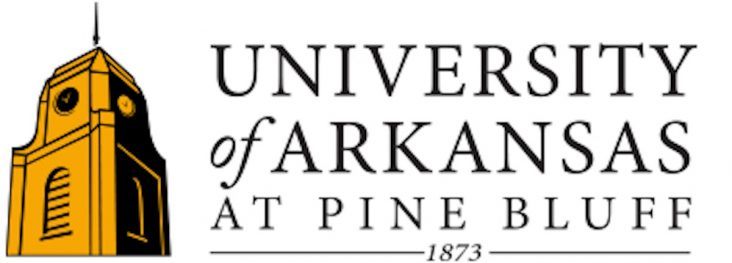UAPB announces plans to go ‘solar,’ looks to reduce university’s energy costs by 30%
by December 21, 2016 4:46 pm 479 views

The University of Arkansas at Pine Bluff (UAPB) on Wednesday (Dec. 21) signed a $19.3 million deal with a construction firm to design and complete the state’s first energy conservation project to meet a 2009 legislative dictate to reduce energy costs on Arkansas college campuses by 30%.
Indianapolis, Ind.-based Performance Services, which has similar projects at secondary schools and colleges across the U.S., has been contracted to do the work at UAPB through the Arkansas Energy Performance Contracting (AEPC) Program, which is part of the state’s Arkansas Energy Office.
According to a news release issued by Performance Service and UAPB, the project will deliver LED lighting, water, building envelope, HVAC and controls upgrades to more than 30 buildings across campus. The keystone of the project is a 321 kWh photovoltaic solar array that officials said will rank as the largest public solar installation in Arkansas once completed.
“We’re thrilled to be working with Performance Services to make significant strides to improve our energy infrastructure. These upgrades will benefit everyone in the Golden Lion community,” Dr. Laurence Alexander, chancellor of UAPB, said in a statement.
“This project quite demonstrably shows UAPB’s commitment to environmental sustainability and campus improvement on a large scale,” Chet Howland, energy program manager for Arkansas Energy Office, said in a statement. “Further, the economic benefits of such an undertaking cannot be understated, as we estimate the project will result in an economic impact of more than $60 million to Jefferson County and Pine Bluff while remaining budget neutral for the university.”
Howland told Talk Business and Politics that the $60 million economic impact projection to the south Arkansas city would come from the local jobs created during the 18-month construction phase of the project, which is expected to get underway immediately.
“The project is funded entirely by guaranteed energy savings and avoided capital cost. The guaranteed savings will cover all phases of the project aside from a major renovation at Harrold Residential Hall, which was a priority for UAPB,” Howland said.
According to state energy officials, the UAPB energy performance project will be the largest of its kind completed under the AEPC Program. Once operational, the project will decrease UAPB’s energy consumption by a sizeable 32%, making UAPB the first state university to meet the 30% energy reduction mandate signed into law by Act 1494 of 2009.
When the Arkansas General Assembly in 2009 passed Act 1494, the legislative measure encouraged the conservation of energy and natural resources in buildings owned by public agencies and institutions of higher education. The primary goal of the legislation was to reduce total energy consumption by 20% by 2014 and 30% by 2017 when compared to fiscal 2008.
Howland said the AEO is working hard to fulfill the legislative directive, but most universities have opted out of the program because the legislation did not provide financing to move the program forward.
Pine Bluff will be the first university in the state to meet all the goals of the 2009 legislation, but AEO has also completed a $15.3 million project with ASU-Jonesboro and smaller $2.4 and $1.7 million projects with South Arkansas and North Arkansas Community Colleges, respectively.
In 2013, ASU announced a comprehensive full campus energy retrofit in the same vein as UAPB which began construction in 2014, while SouthArk and NorthArk both addressed deferred maintenance issues by leveraging low cost upgrades such as lighting and controls and went to contract this year, Howland said.
Projects with Pulaski County, ASU satellite campuses, and state agencies are currently in the latter stages of development.
“The increasing economic viability of public solar projects is driving much of this interest, though limited operational budgets and efficiency mandates remain our main drivers,” Howland said.
Performance Energy spokeswoman Arlene Gavin said the Indiana company is involved in similar energy conservation project across the U.S. with a price tag of more than $16 million. Energy savings from improvements at UAPB are guaranteed by Performance Services to cover the costs of installation on an annual basis over 19 years.
The Pine Bluff project will include more than 1,000 new solar arrays, which will be installed by August of next year. The entire project will be completed by October 2018, she said.
Separately, in laying out his agenda for the 2017 general session, Gov. Asa Hutchinson on Tuesday announced plans to move AEO from the Arkansas Economic Development Commission (AEDC) into the state Department of Environmental Quality as part of his administration’s reorganization and government efficiency efforts. AEDC spokesman Scott Hardin said today that AEO, headed by Director Mitchell Simpson, has already made the transition to ADEQ.
“(They) made the physical transition from our offices … last week and they are now operating totally from ADEQ,” he said.
